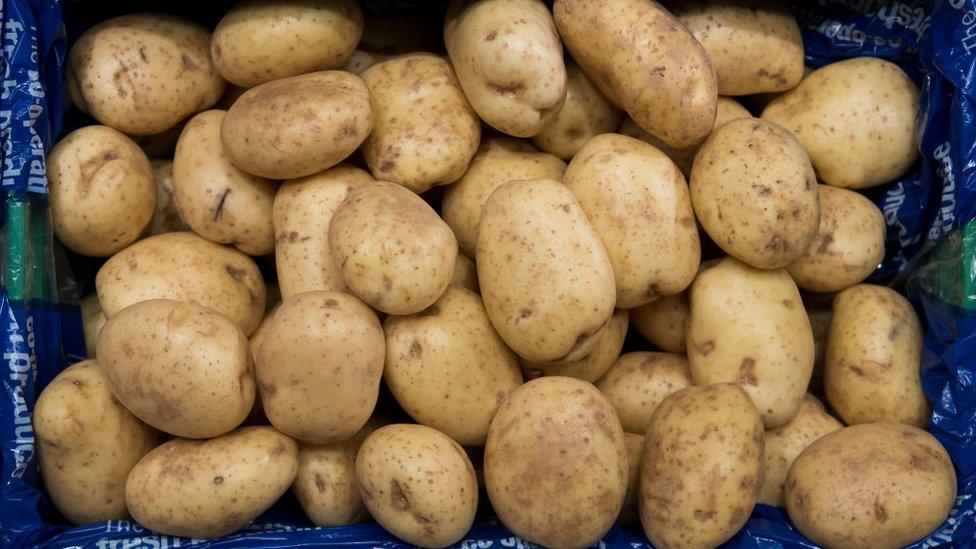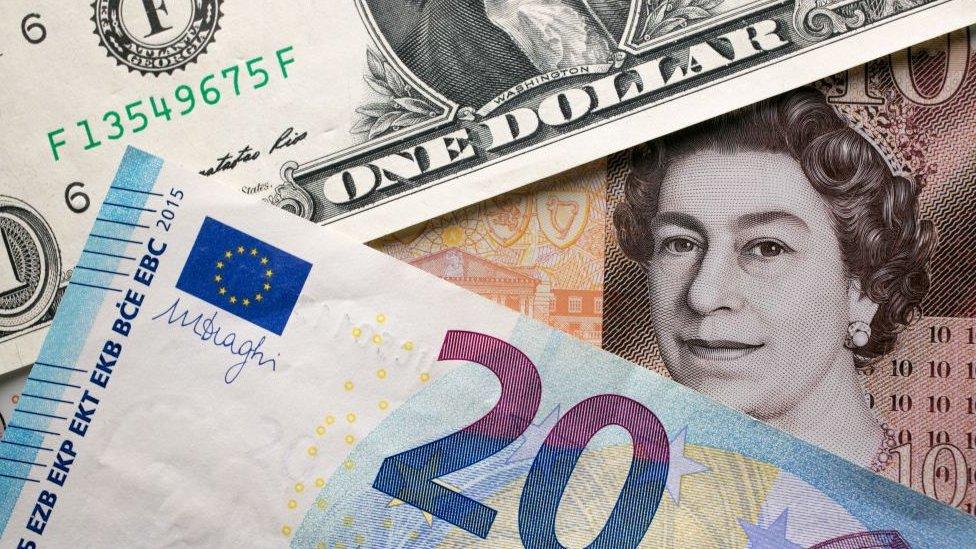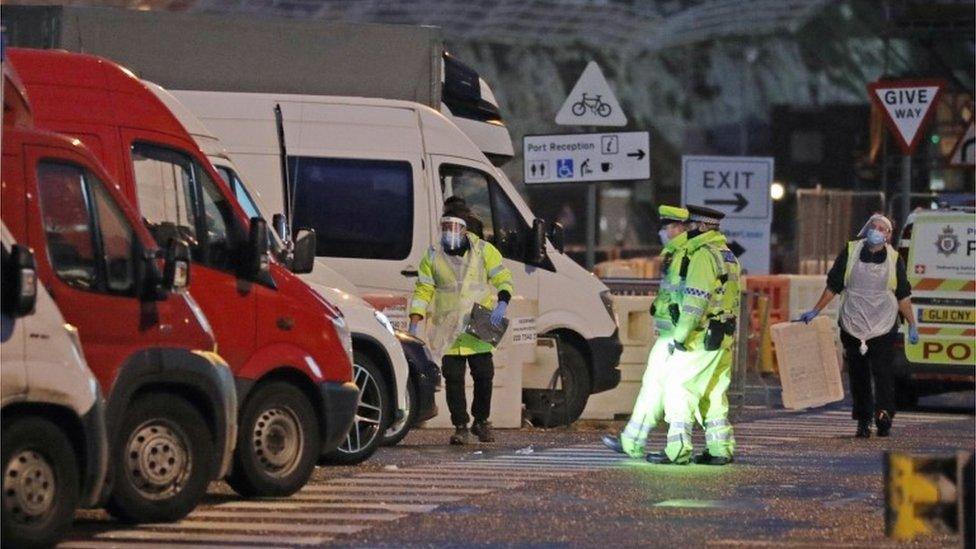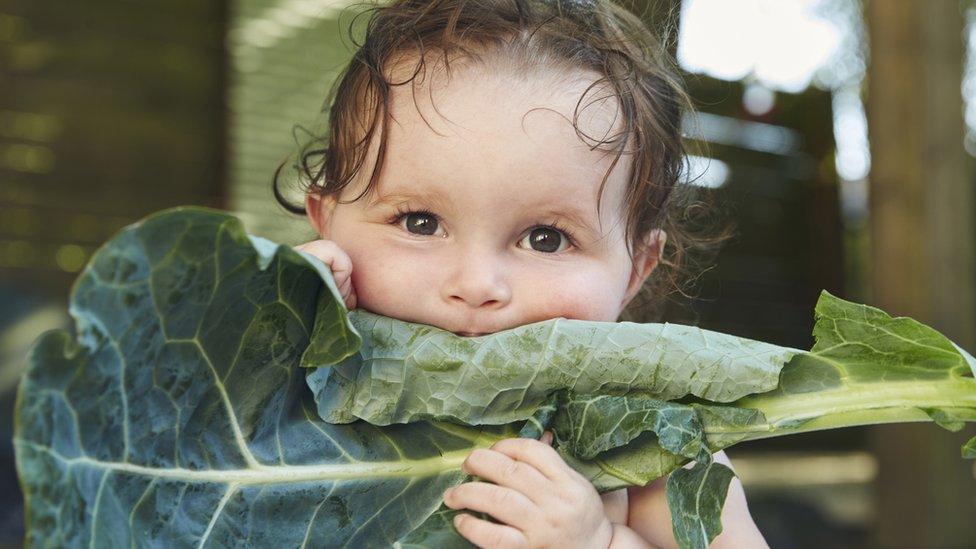EU to allow post-Brexit UK farm produce exports
- Published
- comments

The UK government has told the agricultural industry that the EU will allow almost all food and plant exports from Great Britain to continue after Brexit.
As a first step, the UK has to be awarded "third country" listed status to be allowed to export to the EU.
A Defra letter says the EU will confirm this legally on Monday, with effect from 1 January.
This will apply irrespective of a post-Brexit deal.
If no deal were struck, taxes on imports both ways would apply too, while new red tape such as export health certificates will be introduced.
"Third country listing" is essential to permit continuing exports of, for example, Welsh lamb or live chicks.
The National Farmers Union said it was a "critical step forward". While almost all UK plant exports are also listed, there is a delay on some exports of seeds.
And whereas the export of Ware potatoes for eating is still permitted, there will be a ban on exporting seed potatoes - that is, potatoes which are not meant to be consumed, but are planted in order to grow more potatoes.
The Defra letter says: "Unfortunately the EU have confirmed they will not accept our case for a permanent change to the prohibition on seed potatoes… on the grounds that there is no agreement for GB to be dynamically aligned with EU rules".
This is an industry significantly focused on Scotland and the north of England.
Exports of seed potatoes will also be barred from Great Britain to Northern Ireland. A continuity trade deal with Egypt will protect the largest market for British exports.
'Disastrous'
Scottish government rural spokesman Fergus Ewing said it would be "disastrous for our world leading industry".
It was a delay to the process of granting third country listed status that led to the Government accusing the EU of threatening to "blockade" Northern Ireland. This news guarantees that access for almost everything.
Related topics
- Published23 December 2020

- Published23 December 2020

- Published23 December 2020
